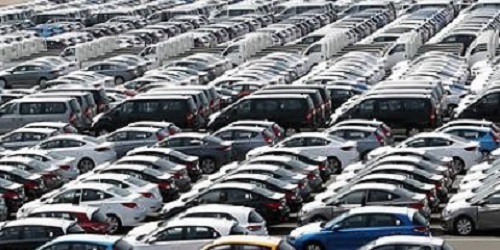South Korea's car exports to the United States have declined, rather than increased, after the two countries abolished import taxes last year as part of their free trade agreement, data showed Sunday.
 |
This photo taken on July 13, 2017, shows the export pier of Hyundai Motor Co. in the southeastern city of Ulsan packed with cars waiting to be shipped. (Yonhap) |
The Korea Automobile Manufacturers Association published the analysis that rebuts a widespread belief in the US that lower tariffs increased Korean car sales in the country. It underlies the recent US calls for amendments to their five-year-old FTA.
Korea's car exports to the US have increased since the trade pact took effect in 2012 but it was not because of tariff benefits, the analysis indicated.
The total number of Korean vehicles sold in the US increased 64 percent from 693,736 in 2012 to 964,432 in 2016. But after the US abolished the 2.5 percent import duties on South Korean cars, Korean cars exports decreased 9.5 percent from over 1.06 million tallied the previous year, according to the data.
Industry watchers say the latest reduction indicates that the increase of auto exports to the US from 2012 to 2015 could be attributed to factors other than tariffs, such as strengthened competitiveness.
Earlier on Wednesday, the US Trade Representative requested that its South Korean counterpart hold a special joint committee to discuss the amendment of the Korea-US FTA.
The pact has widely been considered a symbol of the economic alliance between the two countries, but US President Donald Trump blamed it for being a cause of job losses and other economic problems in the US.
South Korea has said that the trade deal has been mutually beneficial. (Yonhap)








